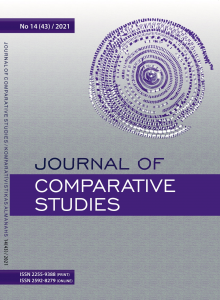The Classical Message in a Bottle - Should "Classical Wisdom" Determine Our Identity and Future?
The Classical Message in a Bottle - Should "Classical Wisdom" Determine Our Identity and Future?
Author(s): Ljuben TevdovskiSubject(s): History, Anthropology, Philosophy, Social Sciences, Cultural history, History of Philosophy, Philosophical Traditions, Sociology, History of ideas, Ancient World, Cultural Anthropology / Ethnology, Social differentiation, Identity of Collectives
Published by: Daugavpils Universitātes Akadēmiskais apgāds “Saule”
Keywords: classical philosophy; globalization; classical tradition; Western civilization; identities;
Summary/Abstract: “No one finds it easy to live uncomplainingly and fearlessly with the thesis that human reality is constantly being made and unmade, and that anything like a stable essence is constantly under threat.” These were the words used by Edward Said in the late 1970’s in the context of introduction of the new paradigms for the identity of the people, communities and societies in the East and the West, as well as the world as a whole. He was ahead of a wider decades long process of re-evaluating and reimagining of our identities and values, leading to exposure of serious and numerous misconceptions and illusions in the perceptions and analyses of the self and the other. The growing tendencies of scientific relativism and constant re-evaluation of the key paradigms, especially in social sciences and humanities, of the last decades, were further emphasized by the massive waves of globalisation, that have shaken societal traditions, norms, and principals all over the world. One of the key aspects of this transformative process in the West was the confrontation with the societal and scientific biases created by the Eurocentric views of the world and human history, connected to the dominant classicistic traditions in both society and academia. This paper provides a novel multidisciplinary approach in thinking about our classical traditions and examines if the classical principals, ideals, and “wisdom” are still relevant in confronting contemporary challenges of the world and reimagining our own identity and our vision for the future.
Journal: Komparatīvistikas almanahs
- Issue Year: 2021
- Issue No: 14(43)
- Page Range: 146-173
- Page Count: 28
- Language: English

